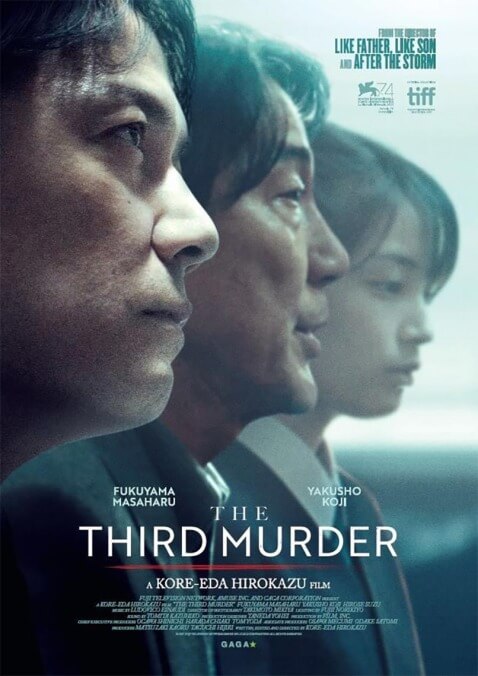Such frustration doesn’t stop one of Misumi’s attorneys from becoming obsessed with the ostensible mystery. Joining the defense team at the last minute, and with visible reluctance, Shigemori (Masaharu Fukuyama) initially attempts to construct a plausible argument that Misumi committed the murder in anger, having recently been fired from his factory job by the victim. (The state has charged Misumi with what the subtitles call robbery-murder, which merits the death penalty in Japan. It’s therefore crucial to make the case that he took the victim’s wallet as an afterthought.) As Shigemori interviews various witnesses, however, alternative theories emerge. The victim’s wife sent Misumi an email that seems highly incriminating. The victim’s teenage daughter is hiding a dark secret of her own. And Misumi himself, who often seems weirdly befuddled when speaking to his lawyers, keeps revising his account of the crime, eventually insisting—despite what the film shows in the opening scene—that he didn’t commit it at all.
In other hands, this basic scenario might have made for a superficially entertaining genre piece, building to a clever final twist. That’s not what writer-director Hirokazu Koreeda has in mind, however. Justly renowned for his tender, intimate family dramas (Our Little Sister, Still Walking, Nobody Knows), Koreeda tends to get lugubrious when he tackles homicide; Distance (2001), inspired by the 1995 Aum Shinrikyo sarin attack, is one of his rare clunkers. With The Third Murder, he seems to be trying to graft his usual mode onto the procedural conventions of the legal thriller, thereby creating a poignant hybrid—an intriguing idea that’s poorly executed here. Shigemori’s troubled relationship with his own teenage daughter surfaces every so often, but never develops into any sort of meaningful emotional counterpoint. Misumi’s two previous murders function largely as clumsy misdirection, serving only to have separated him from his daughter during the many years that he spent in prison. And while that separation informs the most likely motive for his third murder, Koreeda throws in so many competing theories, and affords each of them so much credible weight, that the truth of the matter, whatever it may be, winds up feeling oddly irrelevant.
None of this would necessarily be fatal were The Third Murder involving from moment to moment, but generating tension and suspense from uncertainty isn’t Koreeda’s forte. Yakusho, a great actor (best known for his many collaborations with Kiyoshi Kurosawa), is stuck playing a metamorphosing cipher, and often barely seems like the same character from one scene to the next. Fukuyama, previously seen as the workaholic dad in Koreeda’s Like Father, Like Son, remains stoic to a fault. Conversations heavy on dry exposition are shot in a visually drab procession of alternating medium close-ups, occasionally relieved by artful reflections in glass that superimpose one face onto another. There’s a kernel of a compelling idea here, but as in Distance, it’s buried underneath too much stultifying affectlessness to make an impression. Not to worry, though: While The Third Murder had its world premiere only last September, Koreeda has already made another film, Shoplifters, which won the Palme d’Or at Cannes two months ago. It’s reportedly a tender, intimate family drama, placing him back on sturdy ground. Consider this an aberration.


 Keep scrolling for more great stories from A.V. Club.
Keep scrolling for more great stories from A.V. Club.